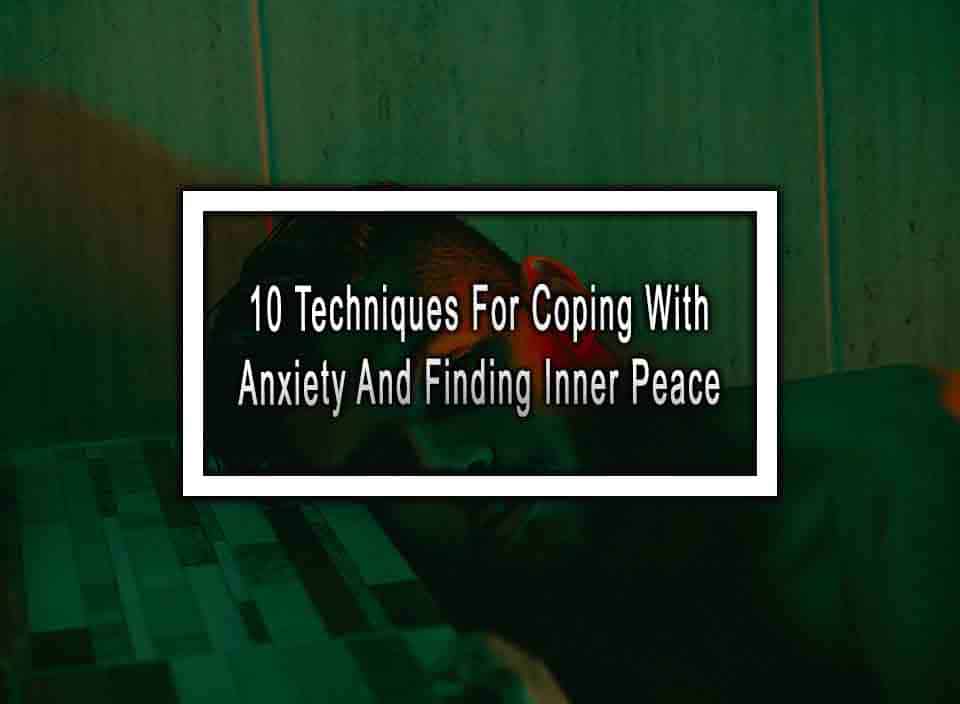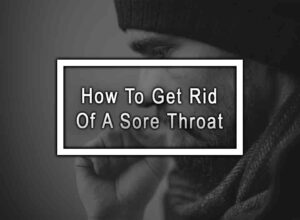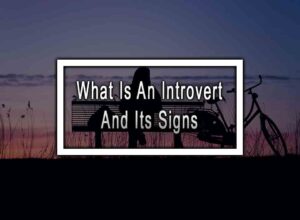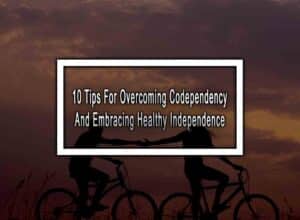Table of Contents
ToggleCoping With Anxiety: Mind-Blowing Ways to Kick Anxiety’s Butt and Live Your Best Life
Anxiety is a common problem that affects millions of people worldwide. It can make everyday tasks seem overwhelming and hinder our ability to enjoy life fully. But fear not! In this article, we’ve compiled 10 proven techniques to help you cope with anxiety and find inner peace. So sit back, relax, and let’s dive into these anxiety-busting strategies!
1. Practice Deep Breathing Exercises
Taking deep breaths activates the body’s relaxation response, helping to calm both the mind and body. Incorporate deep breathing exercises into your daily routine to combat anxiety and reduce stress.
2. Engage in Regular Physical Exercise
Physical activity releases endorphins, which are natural mood boosters. Regular exercise not only improves your physical health but also helps manage anxiety by providing a healthy outlet for stress and anxiety.
3. Maintain a Balanced and Nutritious Diet
What you eat can significantly impact your mental well-being. Nourish your body and mind by including whole foods, such as fruits, vegetables, and whole grains, while avoiding excessive caffeine, sugar, and processed foods that can exacerbate anxiety symptoms.
4. Practice Mindfulness and Meditation
Immerse yourself in the present moment through mindfulness and meditation practices. These techniques help cultivate a sense of calm, enhance self-awareness, and reduce anxiety by redirecting your focus away from worries.
5. Seek Support from Loved Ones
Don’t hesitate to reach out to your friends, family, or support groups when anxiety strikes. Sharing your feelings with trusted individuals can provide comfort, validation, and a different perspective, ultimately helping to alleviate anxiety.
6. Challenge Negative Thoughts with Positive Affirmations
Negative thoughts tend to fuel anxiety. Counteract them with positive affirmations or mantras that promote self-confidence, resilience, and optimism. By replacing negative self-talk with uplifting statements, you can rewire your mind and reduce anxiety.
7. Establish Relaxation Techniques
Discover relaxation techniques that work best for you, such as listening to calming music, taking warm baths, practicing aromatherapy, or indulging in hobbies that bring joy and serenity. Making time for relaxation regularly is crucial for managing anxiety effectively.
8. Get Sufficient Sleep
Lack of sleep can heighten anxiety symptoms and impair your ability to cope with stress. Prioritize quality sleep by establishing a consistent bedtime routine, creating a sleep-friendly environment, and avoiding screens before bed.
9. Limit Exposure to Triggers
Identify triggers that contribute to your anxiety and take steps to minimize your exposure to them. This may involve setting boundaries in relationships, creating a peaceful home environment, or avoiding certain situations that heighten your anxiety.
10. Consider Professional Help if Needed
If your anxiety becomes overwhelming or starts to impact your daily life significantly, seeking professional help from a therapist or psychologist can be beneficial. They can provide you with additional coping strategies and support tailored to your specific needs.
Conclusion
There you have it – 10 powerful techniques to help you cope with anxiety and rediscover your inner peace. Remember, anxiety may feel overwhelming at times, but with the right tools and support, you can regain control over your life. Implement these strategies consistently, adapt them to your preferences, and embrace a new path toward tranquility and happiness. Let go of anxiety’s grasp and embrace a future filled with joy and serenity. You’ve got this!
Coping With Anxiety FAQ
Here are the most common questions about coping with anxiety.
1. What can trigger anxiety?
Anxiety can be triggered by a variety of factors, including stressful life events, traumatic experiences, genetics, chemical imbalances in the brain, chronic medical conditions, and substance abuse.
2. How can I cope with anxiety on my own?
There are several self-help strategies that may help cope with anxiety, such as deep breathing exercises, practicing mindfulness or meditation, engaging in regular physical exercise, getting enough sleep, limiting caffeine and alcohol intake, seeking support from friends and family, and challenging negative thoughts.
3. When should I seek professional help for my anxiety?
If your anxiety symptoms are severely affecting your daily life, relationships, work, or overall well-being, it is recommended to seek professional help. Additionally, if you experience frequent panic attacks, have thoughts of self-harm or suicide, or if your anxiety is accompanied by other mental health disorders, it is important to reach out to a mental health professional right away.
4. What are the treatment options for anxiety?
Treatment options for anxiety can vary depending on the severity of the condition, but common approaches include therapy (such as cognitive-behavioral therapy or CBT), medication (such as selective serotonin reuptake inhibitors or SSRIs), and lifestyle changes (such as stress management techniques and relaxation exercises). It is recommended to consult with a healthcare professional to determine the best treatment plan for your specific situation.
5. Can anxiety be prevented?
While it may not be possible to prevent anxiety disorders entirely, there are steps that can be taken to reduce the likelihood of their occurrence. These include managing stress, practicing self-care, seeking support from trusted individuals, maintaining a healthy lifestyle, and learning effective coping mechanisms for dealing with stress and anxiety.
Remember, everyone’s experience with anxiety is unique, and what works for one person may not work for another. It is important to reach out for professional help and find a treatment plan that suits your individual needs.












